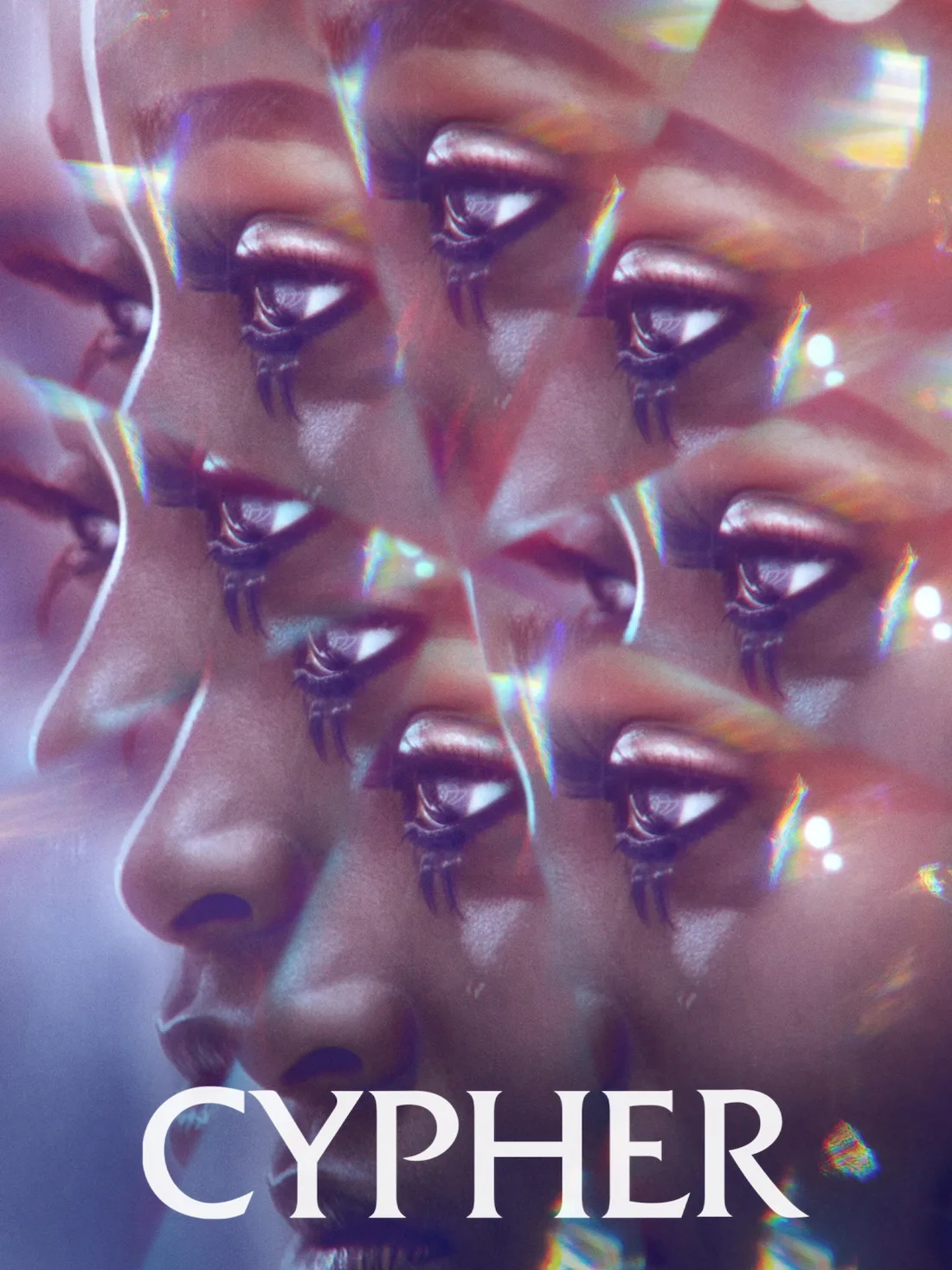Good news: you’ll probably be at home if/when you watch the found footage-style mockumentary “Cypher,” all about real-life Philly rapper Tierra Whack and a deranged stalker. Home-viewing probably best suits “Cypher” since it’s the kind of elaborate put-on that requires you to be in a heightened state of distraction and/or susceptibility.
For a while, “Cypher” seems to be the usual artist profile doc, all about the still-cresting ascent of hip hop star Tierra Helena Whack. Then, the movie’s narrative pivots to become a cautionary tale about fame. At the start of a globe-spanning tour, Whack and a documentary crew discover they’re being filmed secretly by a YouTube weirdo. Meanwhile, the daughter of a conspiracy theorist also tries to get in touch with Whack. She wants to warn Whack and her team and prevent an elaborate ritual involving a shadowy group of, uh, music industry cultists.
You shouldn’t focus on the plot or its preposterous details when watching “Cypher.” Watch it on your Roku or tablet at home, where you’re not as likely to care about the obvious stylistic clash between the movie’s collage of motion-sickness-inducing handheld camera footage and its hyper-stylized title cards, which divide the movie into chapters with ominous titles like “The Gift” and “The Gate,” all of which are presented in a John Carpenter on iMovie style font.
The movie’s horror movie beats, as well as its logic-defying, effects-driven details, also play differently in a theater, especially if a hyped audience surrounds you. Don’t look too hard or give too much credence to “Cypher,” or you might be too quick to dismiss its overwhelming creepiness.
For starters, it’s worth noting that Whack and some members of her team are real, including director Chris Moukarbel and producer Natalia-Leigh Brown, both of whom appear on camera. The rest of the story is a bit of a stretch, despite some amusing talking head interviews that seem real enough when focused on Whack and her career.
Whack is so charming that you might wish there was more concert footage of her in “Cypher.” Instead, we mostly follow Whack and her team as they chase after a conspiracy theory that implicates her and a cabal of Illuminati-type masons who control pop culture as we know it. At one point, a conspiracy theorist asks Moukarbel if he’s Jewish because, according to her, he looks Jewish. That’s supposed to be funny, at least.
There’s no way to enjoy “Cypher” without seeing it as an elaborate and often exasperating joke at viewers’ expense. It literally ends as such, though I won’t spoil the plot further. The filmmakers already do that when they inevitably land on a too-gentle and mostly generic feel-bad anticlimax. The rest of “Cypher” is largely entertaining, though only if you enjoy stories about world-manipulating shot-callers with doofy names like the Oculists, a high-powered offshoot of the Masons. You might also enjoy the unusual craftsmanship—particularly the scene-to-scene editing and unnerving soundtrack, including a score by Patrick Belaga and, uh, Bobby McFerrin?—that makes it easier to buy the movie’s self-serious fabulism.
Watching this type of movie, you have to sometimes believe the filmmakers when they try to convince you that everything you see is true. That’s not a short order given the overwrought nature of “Cypher,” which begins with just-for-kicks musings about how maybe, just maybe, musicians sell their souls in exchange for their influence. Early talking head interviewees, including Whack herself, are demure as they try to soft sell you the movie’s rickety conceptual foundation, that we only have so much free will in a world that’s severely limited by who gets to control the media and whatnot. It can be hard to act naturally, especially when discussing Plato’s Cave or fiddling with an ostensibly innocent-looking radio shaped like Bubo, the mechanical owl from “Clash of the Titans.” But boy, howdy, you’re in for a treat if you like to follow credulous cyphers (sorry!) as they stammer out leading questions to other humanoid plot devices and eventually learn that everything in the mainstream media, including Whack’s fame, is part of an elaborate plot to control the world.
Maybe it’s just bad timing, but I struggled with “Cypher,” not just because of its coy but not so cute magical thinking. Watching this movie in a packed theater might have been an unavoidable mistake, though I did enjoy hearing the audience talk back at the movie whenever the characters did or said something incredible. I heard scattered applause during a key scene when a character destroys a major Oculist symbol. I don’t know that those audience members appreciated the movie’s ironic humor. You might still enjoy “Cypher,” though, especially if you watch it alone, on your couch, thumbing through an app or three.
Now playing on Hulu.




















